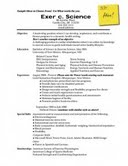Career Advice for Job Seekers
Strategies for Career Advancement, Part Two
In the first installment of this series, we discussed the value of using existing connections to create new networking opportunities and, ultimately, more attractive job prospects. But your network is valuable primarily because it has been built with your professional pursuits in mind. When you decide to switch those pursuits by changing professions, your network is thrown into flux and is less of an asset in helping you get ahead.
But sometimes, such compromises are unavoidable. And while it can be unsettling to make such life-altering decisions, compromise and radical change may be the best —and only—way to get what you really want from your career.
Making sacrifices to get ahead
Professional compromises come in many different forms. An employer may ask you to uproot your life and move to a new region. You may be asked to work in an unfavorable role within your business in exchange for gaining a better shot at advancement. And if you find yourself wanting to change industries and positions altogether, you might not get the luxury of a lateral move.
In fact, some experts estimate that more than two-thirds of all professionals undertaking a career change use graduate school as a means of transitioning. The idea of taking time to earn a business management degree may be too much of a compromise for some individuals, but it’s often the best way to get ahead in a field where you might have little or no relevant experience.
 Propelling yourself into a new field
Propelling yourself into a new field
If you’re serious about changing course mid-career, a willingness to compromise will be a great asset. It’s important to understand that by merely seeking out a new job in a separate field, you might quickly realize you lack the qualifications for positions on par with your current one. Many professionals go to graduate school as a means of acquiring new, relevant skill sets and ultimately propelling themselves to more attractive positions.
Taking time to go to school might not feel like forward progress, but an education could carry you to your desired position faster than you would get there by entering the industry at a lower position and attempting to slowly climb the ranks.
Managing your references amid change
A well-developed professional network will never stop being of value. But when you change careers, the value of your network is also expected to change. References in your past field take on a muted importance because many of their own connections, and their familiarity with your work, won’t translate across industries.
So while your work ethic can always be vouched for by references, your strong track record in computer programming may offer a limited boost to your business management goals. Similarly, references from past industries won’t be as capable of opening doors to new connections in your new line of work. But if you’ve engineered this transition through a return to graduate school, your education should have provided you with a new professional network that relates to your new ambitions.
It’s not easy to accept that you need to take steps backward in order to get ahead, especially if you are farther into your professional career. But in the end, steps backward could ultimately bring you further ahead than you would have come by pressing onward initially. And although your professional life might seem to temporarily flatline as you build toward a new career, remember that you are also molding yourself into a better, more capable employee.
New Job Postings
Advanced Search